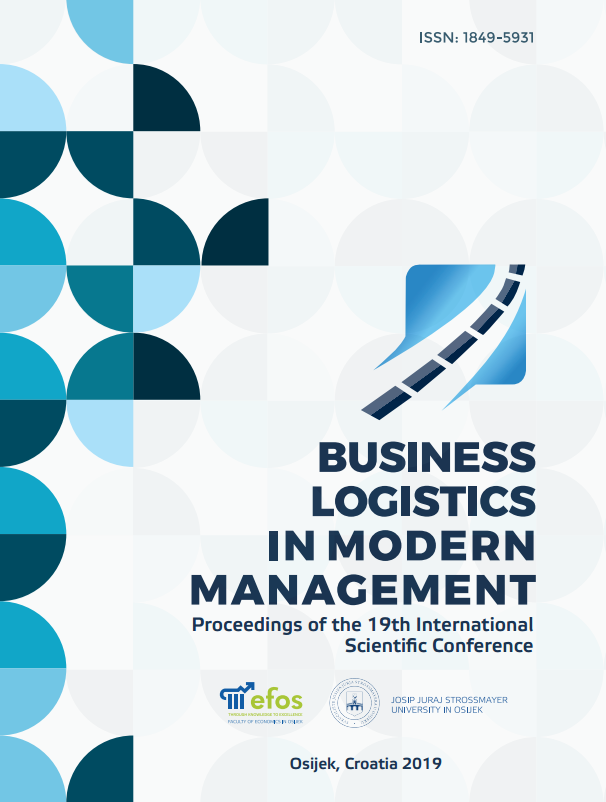OPTIMISATION OF REVERSE LOGISTICS WITH METHODS OF OPERATIONAL RESEARCH
Abstract
Optimisation of routes and searching for the shortest journey is currently an inevitable action during the management of logistic processes which significantly affect the production activity of businesses. There in a market environment it is necessary for businesses to plan transport routes effectively. This represents a key to achieve savings, and a fast and quality customers' satisfaction; last but not least the effectively set transport processes affect the environment protection, too. Thus the optimisation of transport routes represents one of very important aspects of all logistic systems. The protection of the environment is directly related to another important part of a logistic system - reverse logistics. This term includes handling of waste, its management, recycling and disposal. For waste producers, households and businesses, the concerns with waste end with its throwing into containers intended for it; for waste processors, however, this represents the beginning of the whole cycle of processing. The first important part of processing the waste is the waste collection and haulage to its further processing. Optimisation of this part is therefore significant for the economy of the entire waste processing. The article deals with the optimisation of collection and haulage of a selected type of sorted waste. For the sake of a general illustration the optimisation will be performed with heuristic algorithms in a real street network of a selected town. The aim of the article is to determine reserves of the current system of waste collection in a company, to evaluate the options to eliminate these reserves to an essential minimum, to choose appropriate optimisation tools and subsequently to use these tools, and to make the system of waste collection and haulage more effective.

